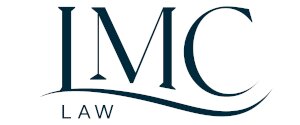Best Child Abuse Lawyers in Dublin
Share your needs with us, get contacted by law firms.
Free. Takes 2 min.
Free Guide to Hiring a Family Lawyer
List of the best lawyers in Dublin, Ireland
About Child Abuse Law in Dublin, Ireland
Child abuse in Dublin, Ireland, encompasses various forms of maltreatment, including physical, emotional, sexual abuse, and neglect. The Irish legal system has specific provisions to protect children and to prosecute those who inflict harm. Legislation such as the Children First Act 2015 and the Child Care Act 1991 provide a framework for identifying, reporting, and addressing child abuse. Additionally, the Tusla (Child and Family Agency) plays a critical role in safeguarding children and offering support to affected families.
Why You May Need a Lawyer
Legal assistance may be required in various situations involving child abuse, including but not limited to the following:
- Allegations of child abuse within a family or community setting.
- Incidents where a child displays signs of maltreatment or neglect.
- Legal disputes over child custody where abuse is a concern.
- Seeking protective orders or restraining orders to safeguard a child.
- Cases where you need representation in court or during investigations.
- Guidance on mandatory reporting obligations for professionals who work with children.
Consulting a lawyer ensures that you understand your rights, options, and the legal pathways available to you or the child involved in the situation.
Local Laws Overview
In Dublin, Ireland, several laws and regulations are pertinent to child abuse cases, including:
- Children First Act 2015: Mandates protocols for identifying and reporting child abuse. It imposes specific duties on organizations and individuals who work with children.
- Child Care Act 1991: Provides measures for the care and protection of children, including provisions for the intervention of Tusla.
- Criminal Justice (Withholding of Information on Offences Against Children and Vulnerable Persons) Act 2012: Makes it an offence to withhold information regarding serious crimes against children.
- Domestic Violence Act 2018: Includes provisions for protective orders that can be applied for in cases of abuse within the home, safeguarding both children and adults.
These laws work synergistically to ensure that children in Dublin are protected from abuse and that there are legal consequences for those who perpetrate such acts.
Frequently Asked Questions
What constitutes child abuse under Irish law?
Child abuse includes physical abuse, emotional abuse, sexual abuse, and neglect. Each type involves different harmful behaviors that can endanger a child's physical or emotional well-being.
Who should report child abuse?
Anyone who suspects child abuse is encouraged to report it. Certain professionals, such as teachers, doctors, and social workers, are mandated by law to report suspicions to Tusla.
What happens after a report of child abuse is made?
Tusla assesses the report and determines the appropriate action, which may include investigation, intervention, and providing support services to the child and family.
Can a child be removed from their home if abuse is suspected?
Yes, under the Child Care Act 1991, Tusla has the authority to seek an emergency care order from the court to remove a child from a potentially harmful environment.
Are there legal consequences for failing to report child abuse?
Yes, there can be legal consequences under the Criminal Justice (Withholding of Information on Offences Against Children and Vulnerable Persons) Act 2012.
How can a lawyer help in a child abuse case?
A lawyer can provide legal representation, help navigate the complex legal system, ensure your rights are protected, and advocate for the best interests of the child.
What are the signs of child abuse?
Signs of child abuse can include unexplained injuries, sudden behavioral changes, fear of going home, poor hygiene, and inappropriate sexual behaviors or knowledge.
Can past instances of abuse be reported?
Yes, past instances of abuse can and should be reported. There is no statute of limitations for reporting child abuse in Ireland.
What support services are available for abuse victims?
Support services include counseling, therapy, medical care, and assistance from governmental and non-governmental organizations dedicated to child welfare.
Can a child provide testimony in a court case against their abuser?
Yes, a child can provide testimony, and special measures are often taken to ensure the child's safety and comfort during the process.
Additional Resources
If you are seeking more information or need assistance, the following resources may be helpful:
- Tusla - Child and Family Agency: Responsible for improving child protection and welfare services.
- Childline: Provides free, confidential support to children and young people in Ireland.
- Women's Aid: Offers support and advocacy services for women and children affected by domestic violence.
- HSE (Health Service Executive): Provides information and services related to child protection and welfare.
Next Steps
If you need legal assistance regarding a child abuse case, consider taking the following steps:
- Contact a Specialized Lawyer: Look for lawyers who specialize in family law and child protection.
- Gather Evidence: Collect any relevant information or evidence that might support your case.
- Report to Authorities: If you haven't already, report the suspected abuse to Tusla or local law enforcement.
- Seek Support Services: Leverage support services for the emotional and psychological well-being of the child and family.
Ensure you act swiftly to protect the well-being of the child and to begin the legal processes required to address the abuse effectively.
Lawzana helps you find the best lawyers and law firms in Dublin through a curated and pre-screened list of qualified legal professionals. Our platform offers rankings and detailed profiles of attorneys and law firms, allowing you to compare based on practice areas, including Child Abuse, experience, and client feedback.
Each profile includes a description of the firm's areas of practice, client reviews, team members and partners, year of establishment, spoken languages, office locations, contact information, social media presence, and any published articles or resources. Most firms on our platform speak English and are experienced in both local and international legal matters.
Get a quote from top-rated law firms in Dublin, Ireland — quickly, securely, and without unnecessary hassle.
Disclaimer:
The information provided on this page is for general informational purposes only and does not constitute legal advice. While we strive to ensure the accuracy and relevance of the content, legal information may change over time, and interpretations of the law can vary. You should always consult with a qualified legal professional for advice specific to your situation.
We disclaim all liability for actions taken or not taken based on the content of this page. If you believe any information is incorrect or outdated, please contact us, and we will review and update it where appropriate.














